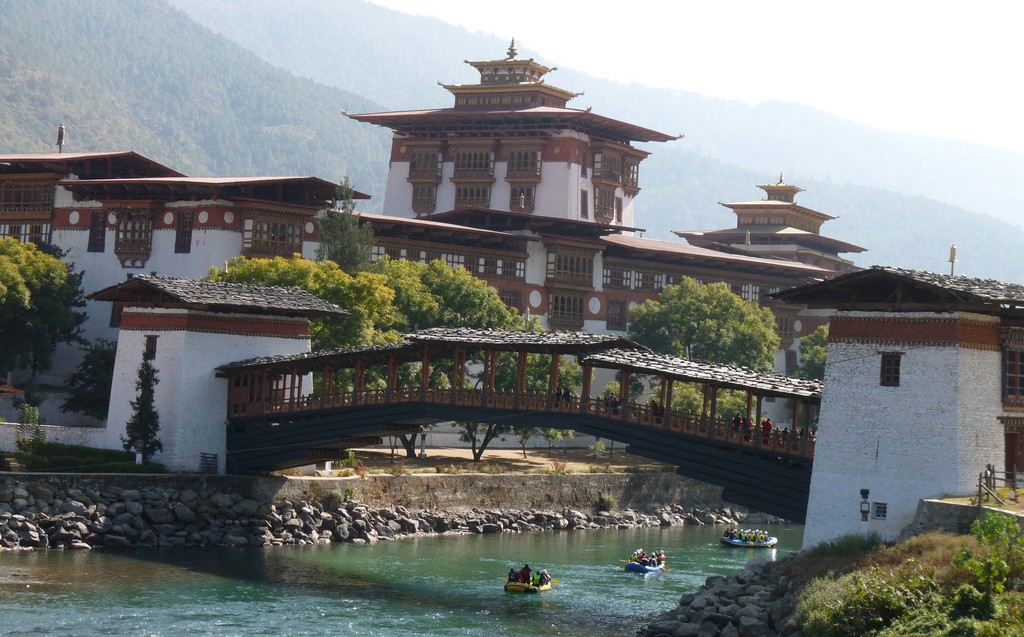Are you interested in applying to THINK Global School but aren’t quite sure if it’s right for you? That’s OK! It’s a decision that shouldn’t be taken lightly. To help you in your application process, we’ve put together a list of five things we feel every applicant to THINK Global School should know. We hope you find them helpful. 1) You’ll gain an education by living and learning in the...
Read More
As increasingly ruthless scenarios play out around the world between dictators and civilians, it becomes difficult to imagine that any country could arrive at democracy without a complicated revolt. Yet in 2008 Bhutan’s king, Jigme Wanghuck, accomplished such a feat when he ceded absolute control in favor of the implementation of constitutional democracy. Since then, Bhutan has undergone two parliamentary elections, with the most recent occurring in the summer of 2013. During this time, withdrawn Indian subsidies on gas and kerosene coupled with a growing dissatisfaction about Bhutan’s direction resulted in a major and unexpected shakeup in Bhutanese politics: the opposition People’s Democratic Party (PDP) took 32 of the 47 seats in the National Assembly (Lower House), and the PDP’s leader, Tshering Tobgay, assumed the role of Bhutan’s prime minister. Mr. Tobgay, a graduate of Harvard University, must now strike a balance between preserving Bhutan’s natural beauty, maintaining relations with its powerful neighbors and stimulating the economy.
GNH, Hydropower and India
While most countries base their success primarily off of GNP, Bhutan takes a different approach, by also measuring the satisfaction of the Bhutanese people through the qualitative and quantitative indicators associated with Gross National Happiness (GNH). GNH measures the spiritual, physical, social and environmental health of Bhutan through four guiding pillars:
○ Sustainable and Equitable Socio-Economic Development
○ Conservation of the Environment
○ Preservation and Promotion of Culture
○ Good Governance
Culture and Environment
It’s difficult to overstate the importance that cultural identity holds for the Bhutanese: Buddhist beliefs are deeply held, and perhaps nowhere else on earth are the ties between land and people more inviolable. For this reason, Bhutan’s elected officials takes great care in moving forward with modernization while avoiding westernization. Roads are carved and cellular towers are erected, but strong precautions are taken to preserve the Bhutanese way of life and keep its cities and countryside green and sustainable: one of Mr. Tobgay’s primary tasks as Prime Minister will be converting Bhutan into the world’s first 100% organic nation.

Anyone who has seen photos or video of Bhutan understands why its officials would strive for such a goal: few places on earth are as environmentally unscathed as this Himalayan paradise. It’s a sharp contrast to the rampant pollution that mars Chinese cities to the north and Indian cities to the south. This is the dangerous result of poorly regulated modernization: the exact thing that Mr. Tobgay and his fellow officials look to avoid.
Socio-Economic Development and India
While the reports regarding the air quality in Indian and Chinese cities are increasingly a cause for alarm, the currency of each nation is firmly on the rise. Maintaining strong relations with these industrialized economies is imperative for a country like Bhutan, where approximately 80% of the population is involved in agriculture and exports are limited. Hydropower, however, has proven to be a bright spot in the Bhutanese economy, accounting for one-fifth of its GDP. Monsoons during Bhutan’s summer months (late-June through late-September) are a frequent occurrence, especially in the western region where they account for between 60-90% of the region’s rainfall. This high amount of precipitation results in Bhutan being the only South Asian country with surplus energy to export. Around 70% of Bhutan’s 1,500 MW of hydropower is currently exported to India; bilateral agreements have also been agreed on for the construction of an additional 10 hydropower plants by 2020. For a country like India, the estimated 10,000MW of clean, carbon-free energy these plants are expected to produce is well worth the hundreds of millions of dollars being spent to procure it.
Realizing hydropower’s vast potential will be a defining challenge for Mr. Tobgay and his cabinet, one that if properly executed could stabilize Bhutan’s economy and set it on the path to self-sufficiency. More about the importance of hydropower to Bhutan can be found in these statistics provided by the Asian Development Bank.
THINK Global School and making connections
On September 3rd, 2013, the students of THINK Global School and Indus International School Hyderabad had the honor of a visit from Prime Minister Tobgay, who was in the midst of a six-day diplomatic tour across India. In his role as a guest speaker, Mr. Tobgay used his time with our staff and students to stress the political, economic and social importance of Bhutan and India’s relations. Mr. Tobgay’s talk, as well as a question-and-answer session, can be found below.
Additional Links
Bhutan will forever hold a special place in our hearts, and we wish Prime Minister Tobgay nothing but continued success. If you’d like to learn more about our experiences in Bhutan, click on the links below for media produced during and after our 2013 intersession.